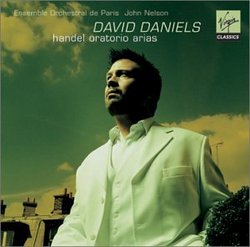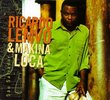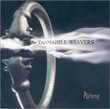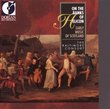| All Artists: George Frederick Handel, David Daniels, Ensemble Orchestral De Paris Title: Handel: Oratorio Arias Members Wishing: 1 Total Copies: 0 Label: EMI Classics Release Date: 9/17/2002 Genre: Classical Styles: Opera & Classical Vocal, Historical Periods, Baroque (c.1600-1750) Number of Discs: 1 SwapaCD Credits: 1 UPC: 724354549724 |
Search - George Frederick Handel, David Daniels, Ensemble Orchestral De Paris :: Handel: Oratorio Arias
 | George Frederick Handel, David Daniels, Ensemble Orchestral De Paris Handel: Oratorio Arias Genre: Classical
This is a splendid recording. The music is beautiful, though of the 13 arias, only the one from Messiah is well-known. The rest come from relatively obscure oratorios (or operas--the distinction is often blurred). Artfully... more » |
Larger Image |
CD DetailsSynopsis
Amazon.com This is a splendid recording. The music is beautiful, though of the 13 arias, only the one from Messiah is well-known. The rest come from relatively obscure oratorios (or operas--the distinction is often blurred). Artfully arranged for maximum diversity of tempo, length, tonality, mood, and character, they add up to a consistently engrossing program. The performances could hardly be better. David Daniels is an extraordinary artist. His voice, effortlessly produced and impeccably focused, has an incredibly pure, even quality over an enormous range. He can give it an infinite variety of nuance, inflection, and expression, from exquisite sweetness in the lyrical arias to assertiveness and defiance in the dramatic ones; it even matches the color of the instruments in answering phrases. His coloratura, delivered in smooth legato but clear and flawless like a string of pearls, is stunning. He gives every note vibrant life and brings out the character of each aria without fuss or exaggeration. In the da capo arias, he embellishes the repeats with imaginative but never excessive ornamentation that sounds genuinely improvised. The period orchestra is excellent. Using normal tuning but baroque style, the players can step forward as soloists or set and underline mood and atmosphere. Listeners will choose their own favorite gems from this treasure-trove, but listening to the concluding aria, "He was despised," one understands why Messiah is Handel's most enduringly popular oratorio. --Edith Eisler Similarly Requested CDs
|
CD ReviewsThe Most Sublime Voice on the Planet 09/19/2002 (5 out of 5 stars) "While David Daniels' brilliant coloratura is in evidence in several numbers on this disc (a breathtaking "Destructive War," from Belshazzar, and "Despair no more shall wound me," from Semele), it's in the slower, more contemplative arias that his singing reaches the sublime. "He was despised" and "Oh Lord, whose mercies numberless" show Daniels at his incomparable best, with his unbelievable breath control, melting legato, and exquisite vocal coloring. This is the most instantly recognizable and beautiful voice before the public today." A beautiful recital 09/23/2002 (5 out of 5 stars) "For once, I'll be brief. Beautiful singing and playing. Daniels performance of "Oh, Lord whose mercies numberless" is alone worth the price of the CD. Mr. Daniels is a consummate musician and this release further gives proof of that. Lovers of Handel and baroque music in general and English oratorios in particular will be more than delighted with this CD. Sit back and enjoy." Very beautifully intoned George Peabody | 04/03/2004 (4 out of 5 stars) "I was greatly impressed with this CD. I have always appreciated Daniel's voice over most other countertenors (and there are many wonderful ones that are simply incredible), and mostly for its warmth and lack of "hootiness." The coloratura is well executed, and his legato line is breathtaking. Then why a four star rating? All of these arias are sung in English, and it seems these days NO ONE, not male, female, soprano, alto, countertenor, seem to know how to sing it so you can understand a word. That is why I say this recording is beautifully intoned, for it is beautifully sung. What is missing is actual communication of something, no meaning exists behind the non-existent words. It would have been so much more meaningful if we could have figured out what he was telling us. I have old recordings of Dame Clara Butt, a huge voiced contralto of the past century. She sings much of this type of music, and in spite of the horrible quality of the recordings, her words come blazing forth effortless to understand. Even Ernestine Schumann-Heink sings credibly in English giving meaning to the words. Singing is WORDS, not just music. Sadly, we are all forgetting this now days, and most of our well known singers are simply horrible when it comes to singing in English (I have bought many Chaldas recording of opera in English, well they may as well have sung in the original language for we at least can figure out the words when singers sing thusly). Countertenors have the world's worst pronunciation of their words out there, but Daniels is usually much better because of the darker quality of his voice. This time, however, I have to say, I was not impressed. The voice is beautiful, the singing ravishing, but there is no meaning because the words are not clear."
|

 Track Listings (13) - Disc #1
Track Listings (13) - Disc #1



